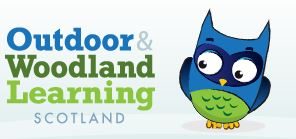Recent Scottish studies and other international research has identified that well-structured outdoor
Learning helps to raise attainment and:
- facilitates children’s development in school grounds, local areas and on residential courses,
- supports learning in all aspects of the school curriculum from 3 to 18,
- provides opportunities for pupils to guide their own learning and develop critical thinking skills in ways elusive in the classroom,
- raises children’s awareness of environmental and sustainability issues, resulting in understanding and promoting an ethic of care for our planet (directly linked with the concept of ‘learning for sustainability’)
- has direct health and wellbeing benefits. This leads to high rates of ‘enhancement of challenge, enjoyment, personalisation, relevance, breadth and progression’ of learning.
Similarly, the ‘Conversations about Learning for Sustainability’ study conducted by Education Scotland in 2014 identified that Learning for Sustainability resulted in:
- Enhanced learning and motivation and readiness to learn.
- Increases in development of skills for life, learning and work.
- Increases in confidence.
- Improved reputation and standing of the establishments in their communities.
- Improved staff morale, wellbeing and motivation.
- Enriched ethos of school and improvements to the community spirit.
The links between education for sustainable development and quality education were further supported by an international Study conducted by UNESCO in 2015.
These briefings and reports, together with others, have been brought together here to support dialogue and interventions to raise attainment and improve outcomes for learners aligned to the Scottish Attainment Challenge, pupil equity fund and other priorities in education.
IDOX Briefing OL and Attainment
Conversations about LfS Report
UNESCO ESD and Quality Education Report
PEF and Outdoor Learning Research List
Impact of Outdoor Learning, attainment and behaviour in schools – LfS Research Briefings – No 3
Learning for Sustainability – effective pedagogies – LfS Research Briefings – No.4
Learning for Sustainability and Attainment – LfS Research Briefings – No.1









